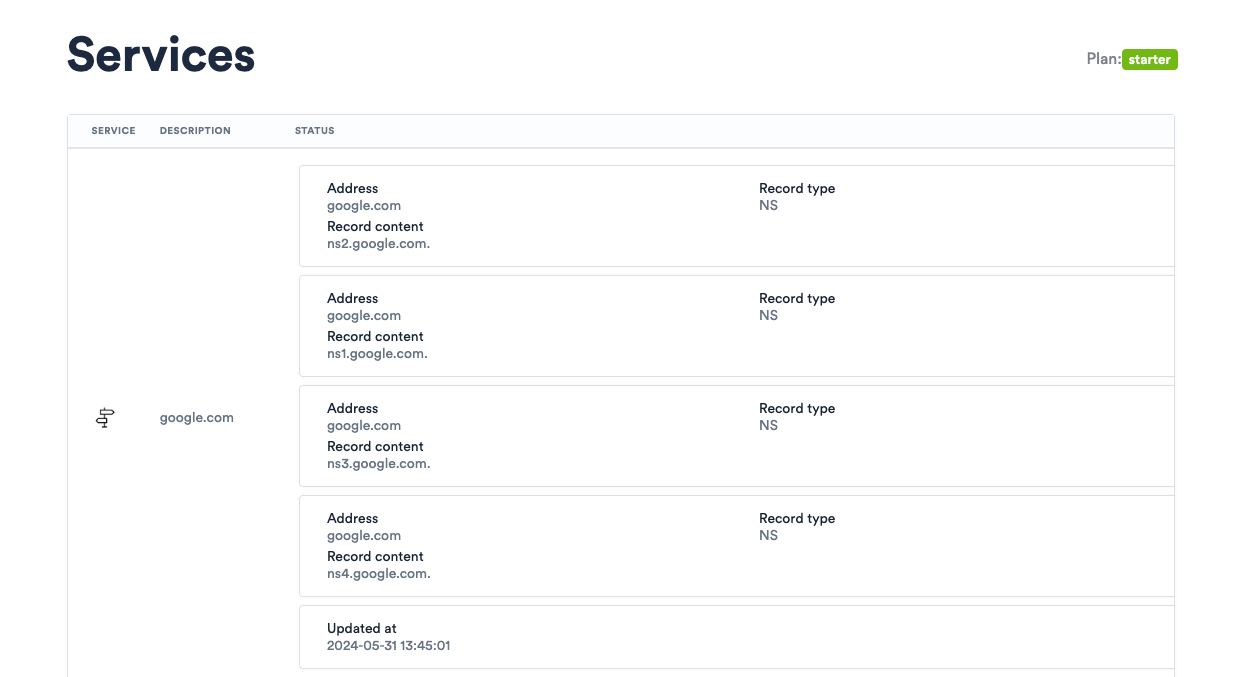DNS Record Monitoring

In the vast landscape of internet security, monitoring Domain Name System (DNS) records is a critical aspect that is often overlooked. DNS, the system that translates human-friendly domain names (like www.ambersignals.com) into IP addresses that computers use to identify each other on the network, is fundamental to the functioning of the internet. Because of its foundational role, DNS can also be a vector for various security threats if not properly monitored and managed. Here’s why it is essential to keep a vigilant eye on your domain’s DNS records for security reasons.
-
Protection Against DNS Hijacking DNS hijacking occurs when an attacker gains unauthorized access to modify DNS records, redirecting users to malicious sites without their knowledge. By monitoring DNS records, you can quickly detect unauthorized changes and take corrective actions before significant damage is done. This is crucial for protecting your brand reputation and ensuring that your customers are not exposed to phishing sites or malware.
-
Preventing Downtime and Service Disruption DNS record changes can affect the availability of your services. Unintended modifications, whether malicious or accidental, can lead to downtime, making your website or email services unavailable. Continuous monitoring helps you ensure that your DNS records remain accurate and that any anomalies are promptly addressed, thereby maintaining service continuity.
-
Detecting Unauthorized DNS Changes Unauthorized changes to DNS records can indicate a potential security breach. By regularly monitoring these records, you can detect and investigate unexpected modifications. This early detection can help you respond to threats more swiftly, preventing further exploitation and minimizing the impact of the breach.
-
Mitigating the Risk of DNS Spoofing and Cache Poisoning DNS spoofing (or DNS cache poisoning) is a technique used by attackers to introduce corrupted DNS data into the DNS resolver’s cache, causing the name server to return an incorrect IP address, diverting traffic to fraudulent sites. Monitoring DNS records can help identify and mitigate such risks by ensuring that your DNS information remains accurate and unaltered.
-
Enhancing Overall Network Security DNS is a critical component of your network infrastructure. By monitoring DNS records, you are taking a proactive step towards enhancing your overall network security posture. It allows you to spot and rectify vulnerabilities that could be exploited by attackers, thereby safeguarding your network against a variety of threats.
-
Ensuring Compliance and Accountability For organizations in regulated industries, maintaining the integrity and security of DNS records is often a compliance requirement. Monitoring helps ensure that you adhere to industry standards and regulatory requirements, providing an audit trail of changes and helping to demonstrate due diligence in protecting your domain.
-
Supporting Incident Response In the event of a security incident, having a clear and up-to-date record of DNS changes can be invaluable for incident response teams. It allows them to quickly understand the scope and impact of the incident, identify the points of compromise, and implement effective remediation measures.
Monitoring DNS records is a crucial aspect of maintaining robust cybersecurity for your domain. By staying vigilant and proactive, you can protect your organization against a range of threats, ensure the continuity of your services, and maintain the trust of your users. Investing in DNS monitoring is not just a security measure; it is a fundamental component of good internet hygiene and risk management.
Now this is possible in an easy and managed way with Amber Signals.
Sign Up for free
Steffen